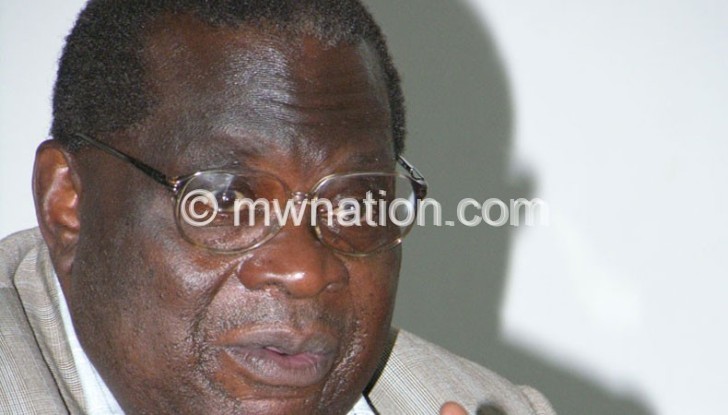ECAMA urges action on rich-poor gap
Economics Association of Malawi (Ecama) says international charity and development organisation Oxfam’s report highlighting a widening gap between the country’s poor and rich people is a “wake-up call” for government.
In an interview on Sunday in the wake of the report titled A Dangerous Divide: The State of Inequality in Malawi by Oxfam Ecama president Henry Kachaje said the findings should also push government to roll out effective pro-poor initiatives.

Among other findings, the report says eight million Malawians (about 50 percent) live in poverty and that if nothing is done to reverse the trend, by 2020, Malawi will have 9.5 million citizens living under the poverty line after more setbacks for 1.5 million people.
Other statistics say the richest 10 percent of Malawians spend 34 times more than the poorest 10 percent. In 2011, the richest 10 percent of the population accounted for 53 percent of total consumption and, in the same year, the bottom 40 percent of the population accounted for 13 percent of total consumption.
Said Kachaje: “The report is a true reflection of the sad picture on the ground in Malawi where the gap is growing between the rich and the poor. This is definitely a wake-up call for those in decision-making position to seriously implement programmes that reduce this gap.”
He lamented the fact that the inequality in education has seen only about 20 percent of students now accessing university education from public schools, with students from private secondary schools, which rich families can afford, monopolising the tertiary education.

“My hope is that this report will make the decision makers to make inclusive and pro-poor decisions and carry out programmes with a view to reducing this glaring gap in society,” Kachaje said.
The report is a culmination of a nationwide study that analysed the changes in various types of inequality between 2004/05 and 2010/11, using results of two nationally representative household surveys. Levels and trends in political inequality in Malawi were also studied.
The study was jointly done by Richard Mussa (PhD), a senior lecturer in economics at the University of Malawi’s Chancellor College, and Winford Masanjala (PhD), an economist who graduated from Louisiana State University, Baton Rouge, in the United States of America.
Kachaje was one of the prominent personalities who attended the report’s launch in Lilongwe on November 26 2015 where Minister of Finance, Economic Planning and Development Goodall Gondwe was the guest of honour. Oxfam regional director (Southern Africa) Nellie Nyang’wa was also present.
During the launch, Nyang’wa advised government to narrow the “dangerous divide,” pointing out that extreme inequality hinders economic growth, stifles social stability, corrupts politics and power, disempowers democratic processes and undermines governance institutions, while also fueling crime and violent conflicts.
“For Oxfam, both globally and at national level in countries across the world, this report comes at a critical time. In 2014, we launched our global campaign, ‘Even It Up’, to challenge decision makers everywhere to address the ever-growing gap between the rich and the poor,” said Nyang’wa, a Malawian based in South Africa.
In their comments, Gondwe and Paramount Chief Kyungu of Karonga admitted that poverty levels are most pronounced in villages and said everyone should help government efforts to try and reduce the ordinary people’s suffering.
Gondwe also acknowledged the threat that inequality poses to the goal of attaining sustainable development in the country.
He said: “If this situation is not reversed, our road to eradication of poverty will be a long one, and in fact may not be reached for many generations. Poverty may even increase in this country.”
Further, the report pointed out that statistics showed that ordinary Malawians were being short-changed in various sectors, including health and economic, political, and land issues. It faults poor policy choices which have sidelined poor Malawians in most projects. n





